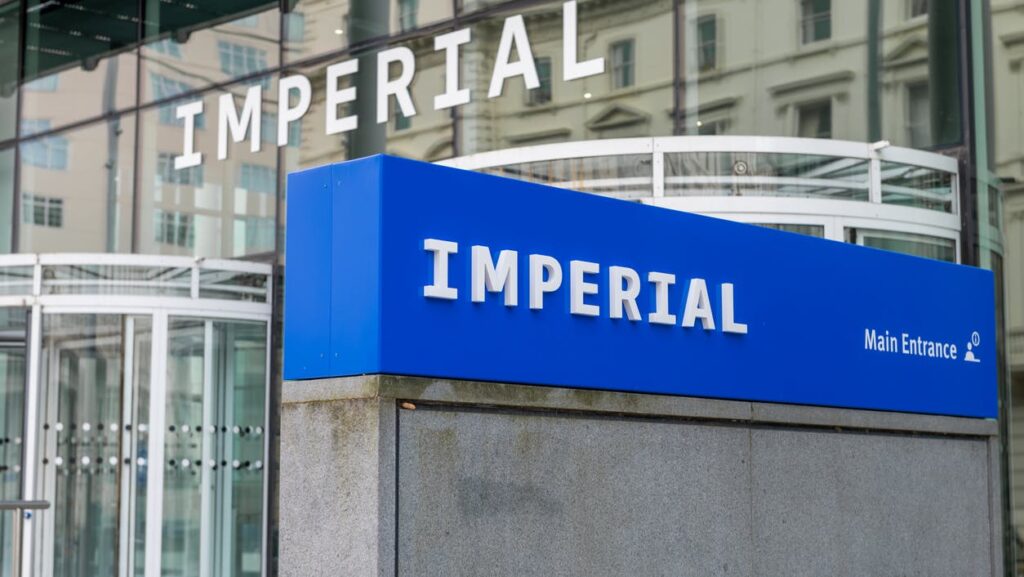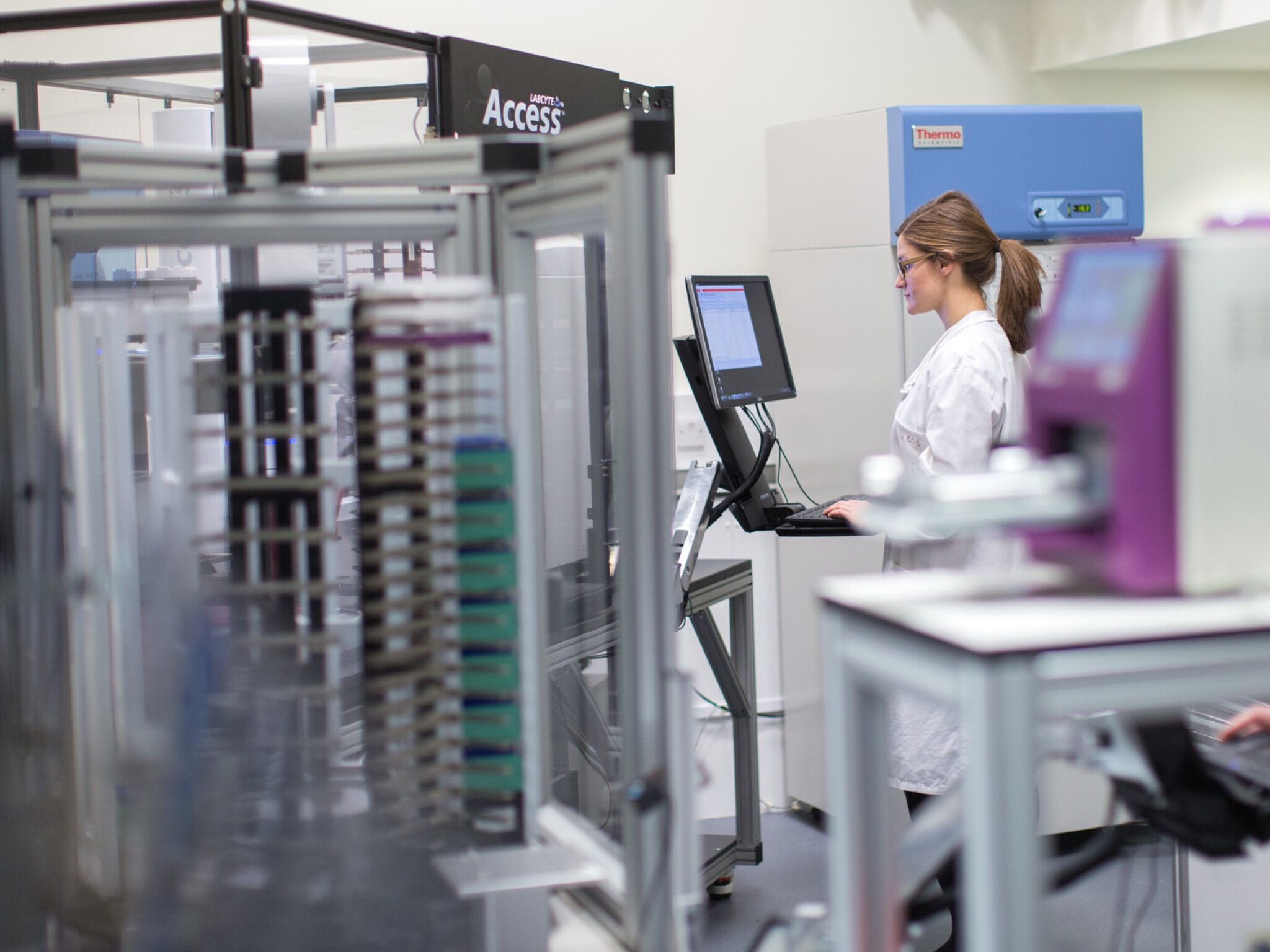Bezos Earth Fund Opens Alternative Protein Hub at Imperial College London, With Next Centre Set for Asia
6 Mins Read
A month after it unveiled the first Center for Sustainable Protein in North Carolina, the Bezos Earth Fund has opened its second alternative protein hub at Imperial College London. It plans to open a third centre in Asia soon.
The Bezos Earth Fund is making good on its alternative protein promise, opening the second of its Centers for Sustainable Protein, this time outside the US.
Housed at Imperial College London, the hub spans seven academic departments at the university, and is infused with a $30M investment over five years.
The Center for Sustainable Protein in London will advance research into precision fermentation, cultivated meat, bioprocessing and automation, nutrition, and AI and machine learning. This intelligence will be deployed towards innovative, evidence-based solutions through the commercialisation of alternative protein products that are not just planet-friendly, but also nutritious, delicious, and affordable.
It comes less than a month after the Earth Fund set up its first such centre at North Carolina State University, also through a five-year, $30M grant. It’s part of the fund’s $1B Future of Food Program, which involved the initial $60M investment in the alternative protein hubs – this has now been extended to $100M. Andy Jarvis, director of the fund’s Future of Food Program, exclusively revealed to Green Queen that a third centre will be opened in southeast Asia.

Imperial Center for Sustainable Protein to use engineering biology
Animal agriculture accounts for up to 20% of global emissions, and meat production alone is responsible for releasing twice as many greenhouse gases into the atmosphere as plant-based foods. And despite taking up 77% of all agricultural land, the livestock industry only supplies only 18% of the world’s calories and 37% of its protein.
The Bezos Earth Fund highlights this disparity to explain how humans need to increasingly adopt alternative proteins, given the world will have 10 billion of us by 2050. It mentions the rise of plant-based foods, the progress made by the fermentation sector, and the potential of cultivated meat as examples of promising solutions.
“Food security is one of the biggest challenges facing humanity,” said Hugh Brady, president of Imperial College London. “For a sustainable future, we need to ensure that people across the world can be fed adequately and nutritiously with minimal impact on biodiversity, climate and our wider natural environment.”
But the widespread adoption of these proteins is dependent on quality and cost improvements, as well as a more efficient use of energy. The Bezos Earth Fund argues that to aid the protein transformation, other components need to be produced more sustainably and efficiently too, such as fats, carbohydrates, vitamins, and compounds responsible for flavour, aroma and colour.
To do so, it is championing engineering biology, which applies engineering concepts to design, build and produce cells and products. The Center for Sustainable Protein will use a mix of rational and AI-guided engineering strategies with automation at biofoundries – where cells are turned into mini-factories to produce useful products – to scale up new bio-based processes.
“Later is dangerously too late if we’re to think about growing our world’s protein sources,” said Jarvis. “Imperial College London has led pioneering efforts in the field of engineering biology, perfectly positioning the university to advance sustainable protein options that will satisfy the growing global masses.”

Collaborating with multiple institutes globally
The European alternative protein centre at Imperial College will have three spokes in the UK, and three abroad, with more than 76 international partners to advance research, innovation and commercialisation.
The UK spokes are grouped under members of the Cellular Agriculture Manufacturing Hub at UCL and Aberystwyth University; the Food Centre at Reading University; and the Growing Kent & Medway consortium involving the National Institute of Agricultural Botany and the Universities of Kent and Greenwich.
Meanwhile, the international spokes pokes are hosted by the Technical University of Denmark (Biosustain), Tufts University (Centre for Cellular Agriculture), and the National University of Singapore.
“Imperial has the leading-edge research, innovation, partnerships and convening power to advance global food systems,” said Andrew Steer, president and CEO of the Bezos Earth Fund. He pointed to the expanding population to implore it is “time to rethink” how we grow and eat food. “This work will help ensure that our future includes more protein options – and that they taste great, are nutritious and come at low cost.”
The Imperial College protein centre will also encapsulate other institutes and facilities to translate discoveries into real-world applications and educate the next generation of bioengineers. These include the Centre for Synthetic Biology, SybiCITE, and the Centre for Translational Nutrition & Food Research, which has partnerships with Nestlé, Unilever, Quorn and Waitrose, among others.
“The Center’s ethos is that bioengineered solutions can – and should – be both planet and people-positive. Imperial is uniquely positioned to harness the potential of engineering biology to accelerate the alt-protein revolution and transform global food systems,” said Rodrigo Ledesma-Amaro from the department of bioengineering at Imperial College, who is the director of the new Center for Sustainable Proteins.
Alternative proteins could ‘define the future’
The Bezos Earth Fund was launched in 2020 through a $10B grant by Amazon founder Jeff Bezos, one of the wealthiest individuals in the world. Last year, the fund committed $1B towards a transformation of the food system. The first investment came during COP28 in December, allocating $57M in food-related grants to tackle the threats of climate change and biodiversity loss and preserve food security.
It was in March that the fund’s vice-chair Lauren Sánchez (who is engaged to Bezos), announced the intention to set up the alternative protein centres. “We need to invent our way out of climate change. And we’re going to do it,” she told an audience at the the Aspen Ideas: Climate conference in Miami.
The idea is to host the hubs in universities “at the cutting edge of science and technology related to sustainable protein”, according to Jarvis. These institutes are creating breakthrough research to make alternative portions cheaper, tastier and healthier.
“They should be responding to industry needs, solving emerging problems, and investing in game-changing new ideas which have transformational potential to bring about step changes for the sector. And the best bit is that should all be open-access – the knowledge generated can be used by anyone to ensure broad impact,” he wrote on the Bezos Earth Fund website.

The North Carolina State University centre, for example, will advance the research, creation, and commercialisation of new technologies, provide training for the emerging industry workforce, and gauge consumers’ protein preferences.
Jarvis said a third centre will announced in a few weeks. “The Bezos Earth Fund’s Future of Food Program is working to transform food and agricultural systems to feed a growing population without degrading the planet,” he stated. “With this kind of firm R&D foundation in place, I believe sustainable protein will be set to properly play [its] part in the future of food. It might even come to define that future.”
Imperial College was at the centre of controversy earlier this month, when a study conducted by its researchers on ultra-processed foods was misconstrued by multiple media outlets, which misleadingly painted plant-based meats as unhealthy.



